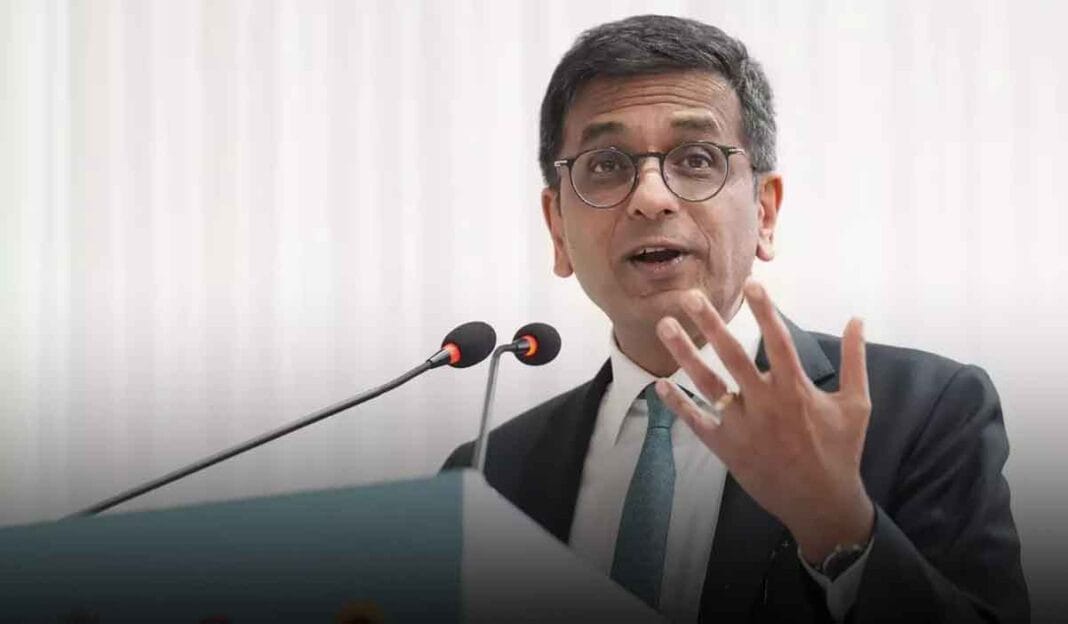Justice D.Y. Chandrachud concluded his tenure as the 50th Chief Justice of India on Sunday, wrapping up two transformative years marked by major rulings and impactful reforms, etching a distinct legacy in India’s judicial history.
During his time on the bench, Chandrachud contributed to numerous landmark decisions, including the Ayodhya land dispute, the abrogation of Article 370, and the decriminalization of consensual same-sex relationships, shaping both societal and political landscapes. Over his eight-year tenure as a Supreme Court judge, he was involved in 38 constitutional benches and authored over 500 judgments, several of which had significant social and legal implications.
Beyond his judicial rulings, Chief Justice Chandrachud also made a substantial impact administratively, overseeing a variety of judicial reforms. He initiated an accessibility audit for the Supreme Court, aiming to make the court more approachable and accommodating for the general public and those with disabilities.
A notable aspect of his legacy is a redesigned “Lady Justice” statue. Unlike the traditional image featuring a blindfolded figure in Grecian attire with a sword, the new statue is a six-foot-tall woman in a sari, holding scales in one hand and the Constitution in the other, without a blindfold. This symbol of justice stirred considerable debate.
In the days before his departure, he addressed the Supreme Court’s summer vacations, renaming them as “partial court working days” to address criticisms of long judicial breaks. Chandrachud’s tenure also reflects a rare familial legacy, as he followed his father, Y.V. Chandrachud, who holds the record for the longest CJI tenure from 1978 to 1985, making them the only father-son duo to serve as Chief Justices of India.
Educated at Delhi’s St. Stephen’s College, Campus Law Centre, and later earning his LLM and a doctorate from Harvard Law School, Justice Chandrachud assumed the role of Chief Justice on November 9, 2022. His comprehensive body of work spans nearly all aspects of law, combining scholarship and legal principles that will likely guide future rulings and legal studies.
Among his significant judgments, he underscored the judiciary’s dedication to defending individual rights and furthering justice, extending the scope of fundamental rights to include privacy and rejecting the electoral bond scheme. Notably, he was part of a five-judge bench that upheld terminally ill patients’ right to a “living will,” allowing for passive euthanasia under specific conditions.
In a historic 2019 judgment, Chandrachud authored the decision in the Ayodhya land title dispute, a century-old contentious issue, which ultimately enabled the construction of the Ram temple. His remark during a public event that he prayed to the “deity” for a resolution of the dispute attracted significant public and media attention.
His legal influence also included high-profile events, such as Prime Minister Narendra Modi’s attendance at a Ganesh Puja held at his residence. Chandrachud was the author of a significant verdict that upheld the 2019 revocation of Article 370, effectively nullifying the special status of Jammu and Kashmir. His contributions also extended to path-breaking judgments on the decriminalization of same-sex relations and the partial invalidation of Section 377 of the IPC, which previously criminalized consensual same-sex activity.
Nevertheless, the issue of legalizing same-sex marriage was left unresolved, with a five-judge bench led by Chandrachud declining to grant it legal recognition. In a landmark decision by a nine-judge bench, he helped assert the right to privacy as a fundamental right under Article 21, concerning life and personal liberty.
Known as one of the most productive judges in India’s history, CJI Chandrachud advocated for key administrative changes, including ongoing digitization under the e-Courts project to modernize court records and proceedings. His list of accomplishments also includes expanding the Medical Termination of Pregnancy Act to allow unmarried women and transgender individuals access to abortion within the 20-24 week period.
Justice Chandrachud, born on November 11, 1959, was appointed to the Supreme Court on May 13, 2016. His judicial career began as a judge in the Bombay High Court in 2000, then Chief Justice of the Allahabad High Court in 2013. Prior to that, he was appointed a senior advocate by the Bombay High Court in 1998 and served as Additional Solicitor General of India.
Outside of his legal pursuits, Chandrachud is also known for his love of cricket, which he reportedly enjoyed in the backyard of the Lutyens Delhi bungalow once allocated to his father, Chandrachud Sr.
Share your news, articles, deals, columns, or press releases with us! Click the link to submit and join our platform today.


